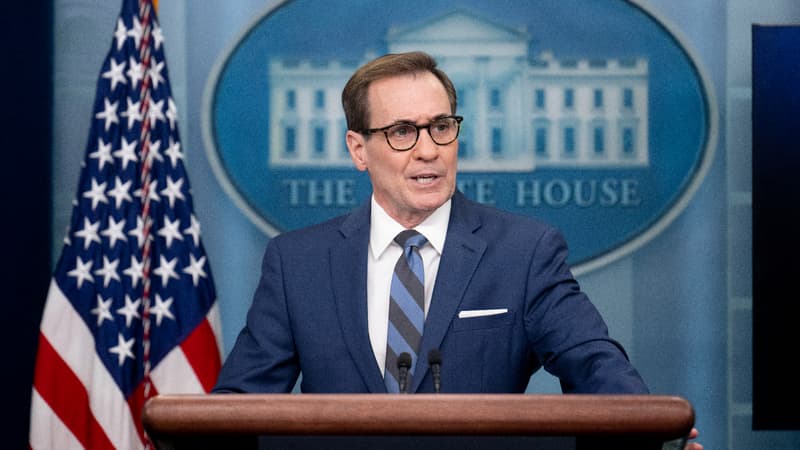The United States on Friday designated the Russian Wagner paramilitary group an international criminal organization, denouncing its abuses in Ukraine, its use of weapons delivered by North Korea and its massive recruitment of detainees.
“Wagner is a criminal organization that commits gross atrocities and human rights abuses,” White House National Security Council spokesman John Kirby told reporters.
John Kirby in particular showed the press satellite images taken by US intelligence of alleged Russian railcars leaving Russia for North Korea and then returning to Russian territory with military equipment, including rockets for the Wagner group in Ukraine.
The images were taken on November 18 and 19, he said, adding that the United States had passed this information to the UN Security Council as part of the sanctions against Pyongyang.
50,000 Wagner soldiers in the Ukraine, including 40,000 prisoners
John Kirby has also quantified Wagner’s numbers and the proportion of prison recruited soldiers in his numbers.
“We continue to consider that the Wagner group currently has some 50,000 people deployed in Ukraine, including 10,000 mercenaries and 40,000 prisoners” to such an extent that it arouses the Russian Defense Ministry’s “reservations” about its “recruitment methods”, he said.
New sanctions to come against the militia
The official announced that Washington would soon take other sanctions against the Wagner group, following the designation on Friday of the group as a criminal organization in the image of the mafia or other organizations linked to organized crime, such as the yakuza.
“We will work tirelessly to identify, expose and target everyone who helps Wagner,” said John Kirby.
The Wagner group, a tool in the hands of its leader
According to Washington, the group is growing in power and now rivals Russian forces. “We have intelligence that tensions between Wagner and the Department of Defense are increasing,” he said.
“Wagner is becoming a center of power that competes with the Russian army and other Russian ministries,” said the US official for whom “Prigokhine (Evgueny Prigokhine, Wagner’s boss, editor’s note) promotes his own interests in Ukraine.” “Wagner makes military decisions on the general basis of what will be favorable for him in particular in terms of publicity,” he added.
Divisions between the Russian army and the Wagner group, noted by many observers, broke out during the battle for the small town of Soledar in eastern Ukraine. When Evgunéy Prigojine claimed responsibility for taking Soledar, the Russian Defense Ministry quickly contradicted him, and two days later announced the capture of the city, which Kyiv denied.
The Kremlin, however, on Monday denied any tension between the Russian military and the paramilitary group, Kremlin spokesman Dmitry Peskov said, speaking of “manipulation”.
Source: BFM TV


